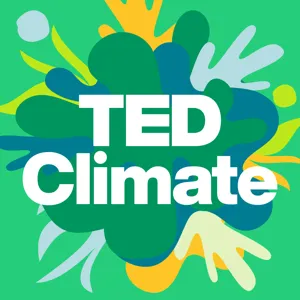Podcast Summary
The Impact of Climate Change on Societies and Economies: The Shrinking Lake Chad: Climate change causes instability, exemplified by Lake Chad's near disappearance. Fulfill climate pledges, invest in human potential, and leverage tech advancements are crucial in addressing both climate change and business growth.
Climate change is causing significant instability socially and economically, as exemplified by the shrinking Lake Chad. UN Deputy Secretary-General Amina J. Mohammed shares her personal experience of growing up by its shores and how its near disappearance underscores the importance of fulfilling climate pledges like the Paris Agreement and the Sustainable Development Goals. Meanwhile, advancements in technology, such as Canva's AI-powered presentation tools and Slack's workflow automations, can help businesses save time and grow more efficiently. However, pressing issues like the Colorado River's water crisis require human intervention and cooperation, as demonstrated in the historic negotiations involving California and other states. Ultimately, investing in human potential and leveraging technological advancements are crucial in addressing both climate change and business growth.
Addressing the climate crisis in the Lake Chad Basin: Decarbonize global economy by 2050, phase out coal, reduce emissions this decade, G20 must lead, stop subsidizing fossil fuels, invest in people, protect planet, fulfill Paris Agreement promises
Climate change is causing devastating impacts on people and the environment, particularly in areas like the Lake Chad Basin where 90% of the freshwater has dried up. This has led to job losses, hunger, displacement, and even violence. To address this crisis, we must decarbonize the global economy by 2050, including phasing out coal and reducing emissions in this decade. The G20, which produces 80% of greenhouse gas pollution, must take leadership and stop subsidizing fossil fuels. By focusing on this transition, we can invest in people and protect our planet, fulfilling the promises of the Paris Agreement.
Decarbonization: More Than Environmental Benefits: Decarbonization not only reduces carbon emissions but also contributes to achieving 17 sustainable development goals, as shown by projects like The Great Green Wall in Africa, which restores lands, creates economic opportunities, and fosters a young workforce. However, realizing this potential requires more funding and international cooperation.
Decarbonization, a key climate action, goes beyond environmental benefits. It's an opportunity to achieve the 17 sustainable development goals, as shown by initiatives like The Great Green Wall in Africa. This project aims to restore degraded lands, plant trees, and create economic opportunities for over half a billion people. It's about more than just keeping dust in the desert – it's about building local value chains, strengthening economies, and fostering a young, growing workforce. However, realizing this potential requires more funding and solidarity from rich countries to meet their Paris Agreement commitments. The success stories of the Paris Agreement and Montreal Protocol prove that solidarity works. We need to rekindle this spirit now to make the potential a shared reality and address the challenges of climate change and sustainable development.
Demand bold action from leaders for climate change: Urgent and consistent climate action is crucial, each person can contribute, and the future is uncertain without it.
It's not too late, but the window of opportunity to address climate change is closing, and it's crucial for all of us to raise our voices and demand bold action from our leaders. The chorus for climate action is growing, but it needs to be more urgent and consistent. Each of us, no matter our role or background, has a part to play in shaping the future. There's a young girl, somewhere in the world, looking towards her future with uncertainty. It's up to us to ensure that her future holds opportunities rather than a wasteland. The time for real action is now, and the choice is ours. Let's make some noise and transform our world.





